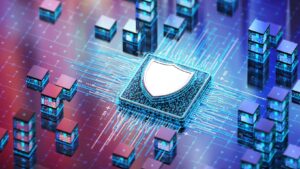In today’s digital landscape, ensuring the security of our online data is more critical than ever. As a cybersecurity expert, I’ve delved into the realm of cybersecurity solutions to provide insights on how individuals and organizations can safeguard their information from cyber threats.
In this article, I’ll explore the latest trends in cybersecurity solutions, from advanced encryption techniques to proactive threat detection measures. By staying informed and proactive in implementing cybersecurity measures, we can mitigate risks and defend against potential cyber threats effectively.
Cybersecurity Solution
Cybersecurity solutions are pivotal in combating threats such as malware, phishing attacks, and data breaches. Implementing robust solutions enhances data privacy and prevents unauthorized access.
Latest Trends in Cybersecurity Solutions
Stay updated with the latest trends in cybersecurity solutions to bolster your defenses. Technologies like artificial intelligence and machine learning are revolutionizing threat detection, while zero-trust security models ensure comprehensive protection.
Components of Effective Cybersecurity Solutions
Effective cybersecurity solutions comprise multiple layers, including firewalls, antivirus software, encryption tools, and intrusion detection systems. Combining these elements creates a resilient defense mechanism.
Proactive Threat Detection Measures
Proactive threat detection is essential to identify and neutralize threats before they escalate. Solutions like security information and event management (SIEM) platforms enable real-time monitoring to detect anomalies promptly.
Cybersecurity solutions play a vital role in safeguarding sensitive data and mitigating cyber threats. Stay informed about emerging trends and continuously update your security measures to stay ahead of potential threats. Strengthening cybersecurity defenses is an ongoing process that requires diligence and proactive measures.
Types of Cybersecurity Solutions
Network Security
Network security involves securing the organization’s network infrastructure from unauthorized access or malicious attacks. It includes measures such as firewalls, intrusion detection systems, and virtual private networks (VPNs) to protect data in transit. By monitoring network traffic and implementing access controls, companies can prevent unauthorized access to their systems and sensitive information.
Endpoint Security
Endpoint security focuses on protecting individual devices like laptops, smartphones, and desktop computers from cyber threats. It includes antivirus software, endpoint detection and response tools, and device encryption to safeguard endpoints from malware, ransomware, and other malicious activities. With the increase in remote work, ensuring endpoint security is critical to prevent data breaches and unauthorized access to corporate networks.
Cloud Security
Cloud security addresses the protection of data stored in cloud environments like infrastructure as a service (IaaS), platform as a service (PaaS), and software as a service (SaaS). Companies use cloud security measures such as data encryption, access controls, and security assessments to secure their sensitive information stored in the cloud. With the widespread adoption of cloud services, organizations need robust cloud security solutions to mitigate risks associated with data breaches and unauthorized access.
Application Security
Application security focuses on securing software applications and programs from vulnerabilities that could be exploited by cyber attackers. It includes secure coding practices, penetration testing, and application firewalls to identify and remediate security flaws in applications. By prioritizing application security, organizations can protect against attacks like SQL injection, cross-site scripting, and other common application-level threats that could compromise sensitive data and system integrity.
Importance of Implementing Cybersecurity Solutions
In today’s digital world, safeguarding valuable information from cyber threats is paramount. Implementing robust cybersecurity solutions is essential for protecting data integrity, confidentiality, and availability. As I navigate through the intricate web of cyber risks, I recognize the critical role that cybersecurity solutions play in fortifying defenses against malicious actors.
Cybersecurity solutions serve as proactive shields, shielding systems and networks from potential intrusions and attacks. They act as virtual guardians, tirelessly monitoring for any signs of unauthorized access or suspicious activities. By leveraging advanced technologies like artificial intelligence and encryption tools, I strengthen the security posture of my digital assets and mitigate potential vulnerabilities.
Network security solutions are at the forefront of safeguarding network infrastructure, erecting digital barriers to deter cyber threats. Endpoint security, on the other hand, focuses on securing individual devices, ensuring that each endpoint is shielded from potential breaches. Embracing cloud security solutions bolsters data protection in cloud environments, ensuring that sensitive information remains secure in the digital ether.




